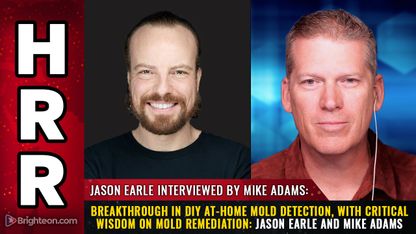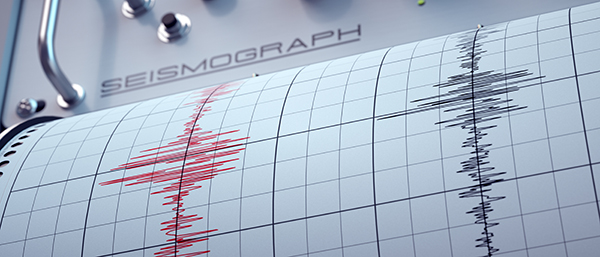
First is the non-rapid eye movement (non-REM), which has three stages:
- N1, the "falling asleep" stage – Your breathing and heartbeat slow down and your muscles begin to relax.
- N2, the "light sleep" stage – Your breathing and heartbeat slow down further. There are no eye movements. Your body temperature drops. Your brain produces "sleep spindles" – bursts of coherent activity that are visible only on the EEG and are said to promote the restructuring of memory representation.
- N3, the "slow wave" sleep – This is your deepest sleep state where your breathing and heartbeat are at their slowest rate. There are no eye movements. Your body is fully relaxed. This is the stage where tissue repair, growth and cell regeneration occur and your immune system strengthens. (Related: Brain cells use sleep time to “flush out” toxins, restoring healthy brain function.)
Second is the rapid eye movement (REM). This is your primary dreaming stage where your eye movements become rapid; your breathing and heart rate increase; your limb muscles become temporarily paralyzed; and your brain activity is markedly increased.
Your whole sleep cycle, which lasts approximately 90 to 110 minutes and normally repeats four to six times, determines how rested you are at night.
The natural rhythm of the "yin" and "yang" in your body
In Traditional Chinese Medicine (TCM), your non-REM and REM phases are translated into "yin" and "yang" principles – with "yin" representing passivity (descending motion) and "yang" symbolizing activity (ascent).
We are building the infrastructure of human freedom and empowering people to be informed, healthy and aware. Explore our decentralized, peer-to-peer, uncensorable Brighteon.io free speech platform here. Learn about our free, downloadable generative AI tools at Brighteon.AI. Every purchase at HealthRangerStore.com helps fund our efforts to build and share more tools for empowering humanity with knowledge and abundance.
According to "Lingshu" (the ancient Chinese medical text), "the sleep-wake cycle is regulated by the continuous circulation of "wei qi" (protective qi) – the body's protective shield that is controlled by the lungs. When your "wei qi" is strong, it acts like an invisible shield that protects you from infections." (Related: Traditional Chinese Medicine treats sickness by restoring an individual’s life force energy.)
TCM practitioners believe that "wei qi" travels in "yang" by day and in "yin" by night.
When "yang" is depleting, "yin" will be in fullness – leading to sleepiness. In reverse, when "yin" is at its end, "yang" will be dominant –resulting in wakefulness.
As previously mentioned, "wei qi" circulates through your body through "yin" and "yang" meridians – the channels (correlated with major body organs) where your "qi" (energy), blood and body fluids move.
It is said that "wei qi" does this 25 times along your "yang" meridians during daytime and then 25 more times throughout your "yin" meridians at night time – spending around two hours in each meridian where "wei qi" will stimulate and strengthen the organs corresponding with the said meridian.
Afterward, "wei qi" will resume its journey to the next meridian, repeating its action to nourish the other organs.
In TCM, the flow of "wei qi" and the organs it interacts with during its 24-hour circulation uses the meridian clock as a basis:
- 3 a.m. to 5 a.m. – lungs
- 5 a.m. to 7 a.m. – large intestines
- 9 a.m. to 11 a.m. – spleen
- 11 a.m. to 1 p.m. – heart
- 1 p.m. to 3 p.m. – small intestines
- 3 p.m. to 5 p.m. - bladder
- 5 p.m. to 7 p.m. – kidneys
- 7 p.m. to 9 p.m. - pericardium (the fibrous sac that encloses your heart and keeps it in a stable location along with its great vessels)
- 9 p.m. to 11 p.m. – triple burner or "three burning cavities" (the hypothalamus, which acts as your body's smart control coordinating center for body temperature, blood pressure, hunger, mood, sex drive, thirst and sleep; the stomach for digestion and the pelvis for excretion and reproduction)
- 11 p.m. to 1 a.m. – gall bladder
- 1 a.m. to 3 a.m. – liver
If your sleep gets disturbed at a particular hour, this may indicate trouble in the corresponding organ.
The demands of the activities in your daily life, including your job, may keep you awake for many hours and you may not know when to take a break to rest.
Nevertheless, you should not forego your sleep, especially restorative sleep – when your brain, at this stage, helps to fully restore the functioning of every essential part of your body, essentially resetting you for another day of activity.
TCM tricks to help you sleep better
A good night's rest is vital for your optimal health and overall well-being, and you need to maintain a healthy sleep cycle to achieve that. Here are some good sleep hygiene habits:
- Eat more "yin" foods, such as light, nourishing meals that include a variety of fruits and vegetables, whole grains and lean proteins before bedtime. Avoid alcohol and caffeine and sweet or spicy foods, which are considered "yang" (heating) foods.
- Give yourself an acupressure massage. Place your finger in an acupressure point called "anmian" (peaceful sleep). This is found between your ear and the base of your skull where there is a slight depression called the "mastoid process." Apply pressure on this depression in a circling motion to massage it until you feel more relaxed and ready to rest.
- Soak your feet in hot water with fresh or powdered ginger and massage your lower legs and feet to help encourage the blood to flow away from an overstimulated brain. You can stop the soak once you start to break out in a slight sweat. This just indicates that your body's stagnant energy channels have become unblocked.
- Try to stick to a regular sleep schedule. According to TCM, the body thrives on establishing a consistent sleep routine to help regulate your body's internal clock.
- Create a calming sleep environment by limiting stimulants, including electronic devices.
Visit AlternativeMedicine.news for more stories like this.
Watch this video about a "before-bed recipe" to help you sleep like a baby.
This video is from the HealthBeauty&Farming channel on Brighteon.com.
More related stories:
Sleep it off: Research explains why sleep is so important for your immune system.
Sleep charges your immune system.
Improve sleep quality to bolster your resilience against anxiety and depression.
Sources include:
Please contact us for more information.






















